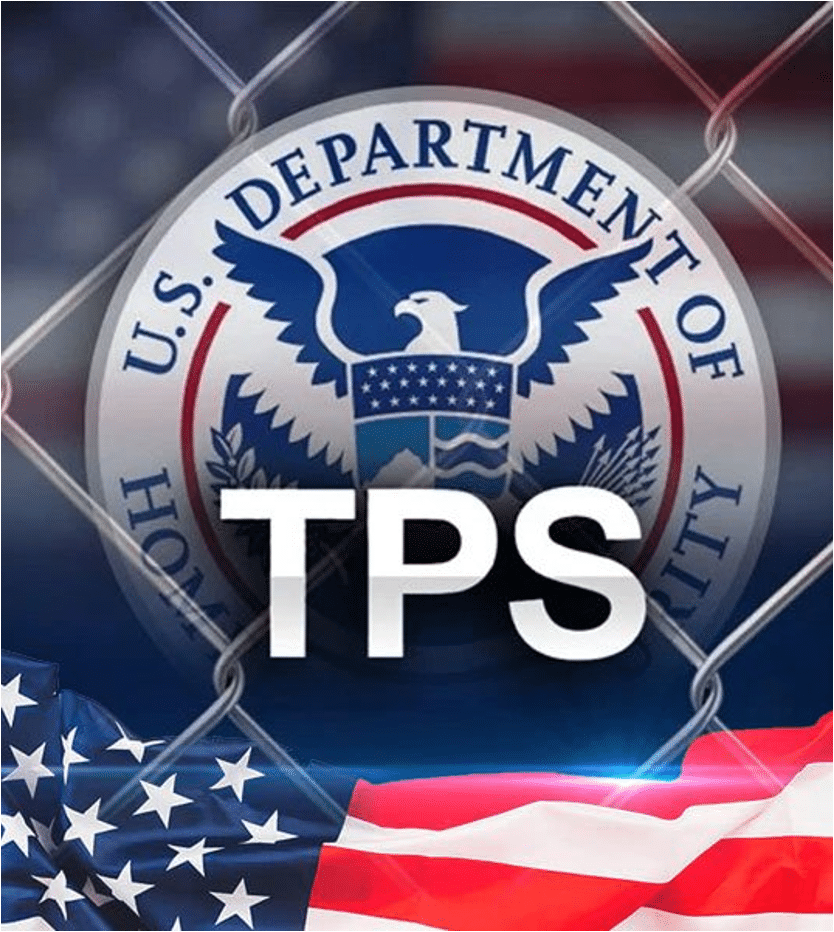Protecting you and your family from potential deportation under Trump administration’s policies
What is an Executive Order?

Not laws or current rules
Executive orders do not have the force of law for the public, they only apply to government-controlled agencies.

Agencies must follow them
Government agencies are required to follow the directives outlined in an executive order.

Can be challenged in court
Attorneys can file lawsuits to stop and terminate executive orders if they are contrary to current law or the Constitution.
Executive orders are directives issued by the President that apply only to government agencies, not the general public. They can be challenged in court if they violate existing laws or the Constitution.
Trump’s Executive Orders on Immigration
-
Birthright Citizenship
Trump attempted to end birthright citizenship for children born in the U.S. to undocumented parents or those with non-immigrant visas, but this was ruled unconstitutional by the courts.
-
Activation of Military Force
Trump ordered the activation of parts of the military force to assist with immigration enforcement.
-
Expanding ICE Powers
Trump gave Immigration and Customs Enforcement (ICE) expanded powers to change and terminate parole, use expedited removal, and cancel court cases filed in the last 2 years + Laken Riley detentions and Worksite enforcement on steriods
-
Detention and Deportation
Trump ordered the detention of anyone found anywhere in the U.S. who is not arrested but not convicted of theft, and the termination of parole for certain immigrant groups like Cubans, Haitians, Venezuelans, and Nicaraguans.
-
Limiting Immigration Benefits
Trump ordered the limiting of extensions for work permits, the end of the family reunification program, and TPS for some countries, and of course barring public benefits (that are already barred)

Birthright Citizenship
President Trump stated that births after February 19, 2025, to undocumented people (including those with TPS and DACA) or those with nonimmigrant visas, will not be recognized by his administration as U.S. citizens. However, the courts have ruled this order as unconstitutional.
Canceling Parole for Cubans, Haitians, Venezuelans, and Nicaraguans
Trump’s Authority
Trump has the power to cancel parole for these groups.
Timing of Cancellation
It is unclear if he will do so immediately or wait until the parole expires.
ICE’s Actions
ICE is already analyzing cases to determine if individuals can be deported under the Expedited Removal program.
Expedited Removal
The Expedited Removal program allows for the deportation of individuals who have been in the U.S. for less than two years without a hearing.
DACA and Trump
Trump’s Past Stance on DACA
Trump has not said anything yet, but in the past, he has stated he wants to get rid of DACA because it is “illegal.”
Recent Court Ruling on DACA
A court recently ruled that DACA is illegal, but this case is being appealed to the Supreme Court
DACA’s Current Status
For now, DACA is still valid.
DACA Renewal Recommendation
You should renew your DACA one year before expiration, not 150 days.

TPS and Trump
Those around President Trump dislike the Temporary Protected Status (TPS) program, which provides temporary immigration protection for individuals from certain countries. However, before leaving office, President Biden renewed some TPS protections. Individuals with TPS should apply for and travel under Advance Parole to obtain a legal entry into the United States, and they can also apply for residency through employment if they have traveled with Advance Parole.
Who Will ICE Arrest?
-
Limited Resources
ICE agents have limited numbers and budget, so they cannot conduct door-to-door sweeps to find and detain all undocumented immigrants.
-
Recent Arrivals
ICE will focus on detaining people who have entered the country recently, especially those who have not filed an asylum claim.
-
Prior Deportation Orders
ICE will target individuals who have previously received a deportation order and did not leave the country.
-
Arrests by Police
ICE often relies on local law enforcement to identify and detain undocumented immigrants, especially those who have been arrested for crimes.
-
Collateral Arrests
ICE may detain anyone present during an arrest, even if they are not the primary target, if they believe the person is deportable.
Requesting a Bond
Bond Amount
If you are detained, you must be prepared to pay a bond, which will likely be between $12,000 and $15,000 for someone without a criminal conviction.
Birth Certificates
Provide birth certificates of qualified permanent resident or American citizen relatives (children, parents, spouse), if any.
Tax Forms
Provide tax form “W-2” with copies of federal taxes (IRS Transcripts) for each year living in the US.
Letters of Support
Gather letters from employers, friends, family, church, school, etc., about the person’s good moral character.
Proof of Family Suffering
Provide documents proving family suffering if the person is not bonded and released, such as medical records or school records.
Proof of Presence
Provide documents showing physical presence in the US (at least one for each year), such as rent receipts, bank accounts, or federal taxes.
Preparing and Protecting Yourself
-
Gather Documents Proving Presence in the US for 2+ Years
Collect documents such as tax forms, rent receipts, bank statements, and other proof of physical presence in the US for at least 2 years. This demonstrates your long-standing ties to the country.
-
Gather Documents Related to Immigration Cases
If you have an ongoing immigration case, gather all related documents such as court notices, application forms, and any communication with immigration authorities. These documents show you are actively participating in the legal process.
-
Create an Emergency Contact List
Prepare a list of emergency contacts, including family members, friends, and trusted community members who can assist you or your family if you are detained. Share this list with your children’s school and other important contacts.
-
Establish a Power of Attorney for Property and Minors
Create a power of attorney document that allows a trusted relative or friend to make important decisions regarding your property and the care of your children, such as enrolling them in school or making medical decisions, in case you are detained or deported.
-
Avoid Contact with the Criminal Legal System
Minimize your interactions with law enforcement and the criminal justice system, as any arrests or charges, even if dismissed, can be shared with immigration authorities and used against you.
-
Avoid Contact with Immigration Agencies
Do not apply for any immigration benefits, such as adjustment of status or citizenship, and do not travel outside the US without first consulting an immigration attorney, as these actions can put you at risk of detention or deportation.
Your Rights if Detained

Right to Remain Silent
You have the right to refuse to answer any questions from ICE agents about your immigration status, place of birth, or criminal record.

Right to Speak with Attorney
You have the right to request to speak with an immigration attorney before answering any questions or signing any documents.

No Obligation to Provide Documents
You do not have to hand over any documents, such as passports or consular IDs, unless ICE agents have a warrant signed by a judge.

Avoid Lying or Providing False Info
Do not lie or provide any false documentation, as this can negatively impact your case. Remain calm and exercise your rights.
Remember, your rights are critical to protect yourself from deportation. Exercise them calmly and firmly to ensure your case is handled properly.

Protecting Yourself in the Car
If you are approached by ICE agents in your car, it is important to remain calm and exercise your rights. ICE agents may try to detain you or question you about your immigration status, even if they do not have a warrant.
Key Takeaways
Gather Important Documents
Gather birth certificates, tax forms, proof of presence, legal status, and other documents that demonstrate your ties to the U.S. and can support your case if detained.
Create an Emergency Plan
Prepare a power of attorney for the care of minors, an emergency contact list, and share this information with trusted individuals and institutions like schools.
Know Your Rights
Understand your rights when interacting with ICE, such as remaining silent, not consenting to searches, and requesting to speak with an attorney.
Avoid Unnecessary Interactions
Minimize contact with law enforcement and immigration agencies to avoid potential detainment or deportation proceedings.
Seek Legal Counsel
Work closely with an experienced immigration attorney to navigate the legal system and protect yourself and your family.

Conclusion
The current immigration landscape under the Trump administration has created significant uncertainty and challenges for many immigrant communities. However, by taking proactive steps to understand your rights, gather crucial documentation, and seek legal counsel, you can better prepare and protect yourself and your family during these uncertain times.



